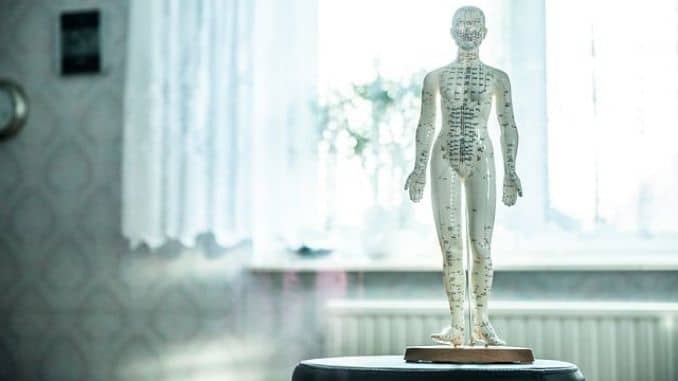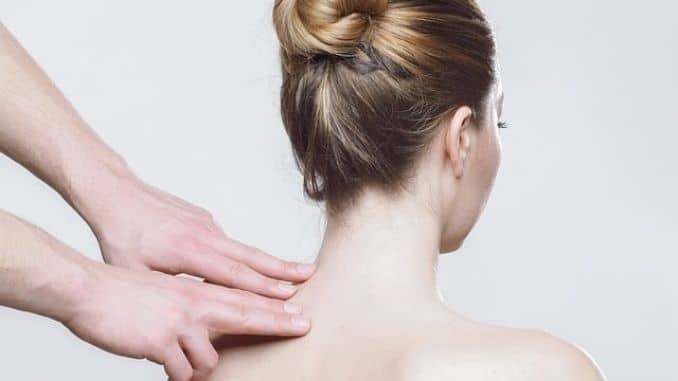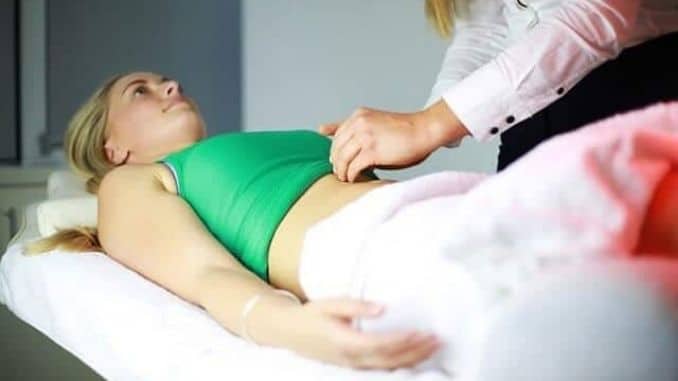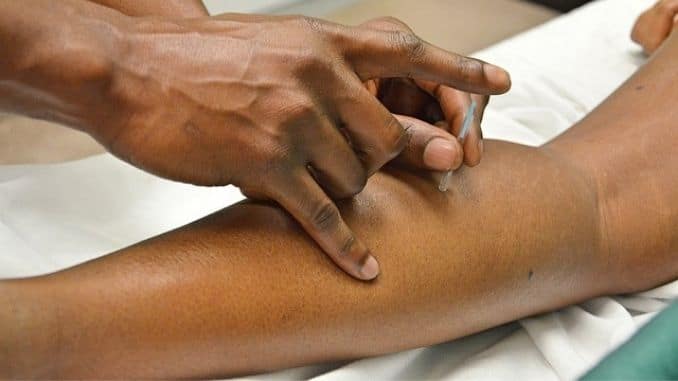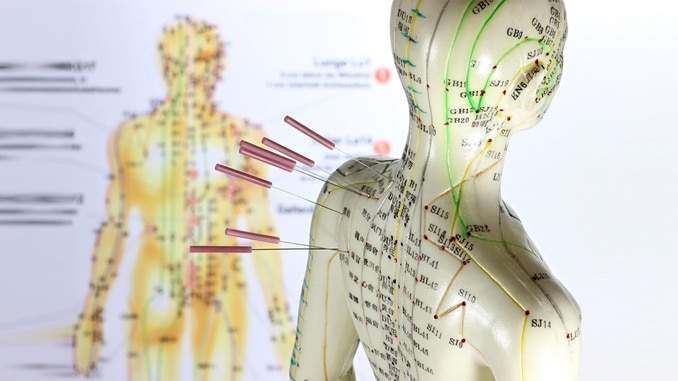
Between 1999 and 2017, more than 700,000 people died from a drug overdose, and 68 percent of those deaths involved an opioid. On average, 130 Americans die every day from an opioid overdose.
The Centers for Disease Control and Prevention (CDC) states that the rise of overdose deaths can be partially attributed to the increased prescribing of opioids in the 1990s. To help address that factor, they suggested reducing exposure to prescription opioid pain relievers.
That means finding other options for reducing pain, and one of those is acupuncture. An ancient technique of restoring balance to mind and body, acupuncture has been shown in modern studies to be an effective form of alternative care for reducing pain.
The National Institutes of Health (NIH) is now funding a large-scale pragmatic trial to evaluate the impact of, and strategies to best implement, acupuncture treatment of older adults ― 65 years and older ― with chronic low back pain.
The Centers for Medicare & Medicaid Services (CMS) is also soliciting public comment on whether acupuncture treatments specifically for lower back pain should be covered under the Medicare program.
Considering how seriously our national health care organizations view acupuncture, it makes sense that we all should take a second look to see how we may benefit from this interesting treatment.
What Is Acupuncture?
Acupuncture is an ancient form of medicine that originated in China. About 100 B.C., a document entitled “The Yellow Emperor’s Classic of Internal Medicine” contained information about the practice. The document was believed to be a compilation of traditions handed down through the centuries.
Acupuncture is based on the idea that a natural life force or energy called “qi” ― pronounced “chee” ― flows through us all. If there is a disturbance in the flow, it can cause health issues. Traditional Chinese medicine practitioners identified certain channels in the human body through which qi was thought to be transported and established that by tapping into these channels, qi could be redirected or unblocked, thereby restoring wellness.
The practice of acupuncture today involves the insertion of extremely thin needles — no wider than a strand of hair — at specific established points throughout the body to balance the flow of qi and help reduce pain, ease stress, promote relaxation and treat a number of other common health problems.
How Does Acupuncture Work?
Scientists aren’t sure how acupuncture works, but they have some theories. One is that the acupuncture points established in the practice are places where nerves, muscles and connective tissues can be stimulated. This helps increase blood flow and triggers the release of some of the body’s natural endorphins, relieving pain.
Evidence shows, for example, that in response to acupuncture, the body releases its own natural opioid peptides, which then go to work relieving pain. When patients were given treatments that blocked these opioids, acupuncture didn’t work as well.
Acupuncture also seems to stimulate the hypothalamus and the pituitary gland in the brain, which could explain why it helps relieve stress. These glands work together in the hypothalamic-pituitary-adrenal axis (HPA axis), sending messages back and forth and the adrenal glands, controlling our reactions to stress, as well as other bodily functions.
Scientists have found that acupuncture can influence communication along this axis, calming it down and helping to ease stress while reducing the release of stress hormones.
Acupuncture seems to affect the immune system too. In a 2015 study, researchers stated that acupuncture can regulate immunity in such a way as to enhance anticancer and antistress immune function while taming inflammation. This action, they theorized, could indicate that acupuncture could help prevent and treat disease.
Most practitioners look at it more simply, however, stating that acupuncture helps promote the natural self-healing process that already exists in the body. Needles may be used to help inspire this process, but so too might pressure ― in the practice of acupressure ― heat and the application of herbal medicines.
What Conditions Does Acupuncture Treat?
The National Centers for Complementary and Integrative Health (NCCIH) states that acupuncture may help ease the following types of pain:
- Low-back pain
- Neck pain
- Osteoarthritis & knee pain
- Headaches & migraines
Scientists analyzed 16 reviews of studies focused on acupuncture and back pain and, in 2015, reported that the practice provided pain relief and improved function for those with chronic low-back pain.
In 2018, a meta-analysis on acupuncture showed that it was effective against low-back pain, shoulder pain, neck pain, headache and osteoarthritis and that the effects persisted over time.
In another review of 10 studies, researchers found that acupuncture was an effective treatment for pain and physical dysfunction associated with osteoarthritis of the knee.
An earlier study had one group of patients with knee osteoarthritis take 23 true acupuncture treatments over a period of 26 weeks while a control group received six two-hour treatments over 12 weeks or 23 sham acupuncture sessions over 26 weeks. Results showed that patients in the true acupuncture group experienced greater improvement in knee function.
The American Migraine Foundation notes that acupuncture can help reduce the frequency of headaches in individuals with migraines at a level that may be similar to that achieved with preventive medications. In a review of 22 clinical trials involving nearly 5,000 people, the frequency of headaches dropped by 50 percent or more in up to 59 percent of individuals receiving acupuncture, with effects persisting for more than six months in many cases.
These studies and more give us evidence that acupuncture may be effective for all types of pain relief.
Can Acupuncture Treat Other Conditions?
We have many studies on acupuncture and pain, which is why major health care organizations are looking more seriously into this option for patients struggling with chronic pain issues. There is some evidence, however, that the practice may be helpful in other situations, too.
1. Stress, Anxiety & Depression
As noted above, acupuncture seems to have an effect on bodily systems that are associated with stress, enough that it can help patients relax and experience calmer. A 2017 study reported that acupuncture helped college students at a large urban university experience less stress and that the effects persisted for at least three months after the 12-week treatment concluded.
The Anxiety and Depression Association of America (ADAA) also notes that the evidence for the use of acupuncture to treat anxiety disorders is becoming stronger. In research on 755 people with moderate to severe depression, acupuncture and counseling had a strongly positive effect on depression, improving symptoms and lasting for three months after treatment stopped. In a 2013 review of six trials, researchers found high-level evidence to support the use of acupuncture for treating a major depressive disorder in pregnancy too.
2. Insomnia
Results from a 2018 study showed that about 25 percent of Americans experience acute insomnia each year. Could acupuncture help? Some studies show it might.
In 2009, after reviewing 46 trials involving more than 3,800 patients, researchers reported that acupuncture worked better than medications when it came to increasing the total sleep duration for more than three hours and that acupuncture plus herbs worked better than herbs alone on increasing sleep rates.
Another study found that six weeks of acupuncture treatment helped patients with insomnia to improve sleep quality, decrease daytime sleepiness and increase overall vitality.
3. Nausea & Vomiting
Acupuncture may help ease nausea and vomiting that occurs after surgery, or that is associated with pregnancy or chemotherapy treatments. In a review of 26 trials, researchers found that the treatment was effective for postoperative nausea and vomiting. Results from 11 of those trials also showed that acupressure was helpful for chemotherapy-induced nausea and vomiting while results for pregnancy-induced nausea and vomiting were mixed.
In a 2002 study, however, researchers found that acupuncture helped women who were less than 14 weeks’ pregnant with symptoms of nausea and vomiting. Those receiving traditional acupuncture reported less nausea and less dry retching than those who weren’t receiving acupuncture.
4. Weight Loss
Recent research has suggested that when combined with other traditional methods of weight loss, acupuncture may help patients to lose more weight. Traditional Chinese acupuncture suggests manipulating points on the ear to help control cravings, and this method has been found in some cases to help people eat less. In one study, ear acupuncture combined with a 2,000-calorie-per-day-diet and a 15-minute daily walked helped people lose weight.
In another study of 20 obese women, those who received ear acupuncture lost an average of 10 pounds while those not receiving the treatment lost only three pounds during the same period of time. Other studies have found that traditional acupuncture as well can help not only reduce weight but reduce the dangerous inflammatory reactions associated with overweight as well.
How to Find a Qualified Acupuncturist
If you’d like to try acupuncture, the most important thing is to find someone who’s properly licensed and who has experience in the type of acupuncture treatment you’re seeking. Each state has its own licensing requirements, and your practitioner should be able to show you his or her state license number.
Ask about the person’s experience and whether he or she has worked with your condition before. The more experience the person has, the better your results are likely to be. Check online for views and patient satisfaction and when you go to the appointment, make sure the treatment room looks clean and safe. Be sure that the needles used are sterilized and that the blankets and pillows are fresh.
Finally, look for someone who listens carefully to you, doesn’t rush you and is upfront about treatment plans and costs. Check with your insurance to see what they may or may not cover. Then, give the treatment a try — you may be happy that you did.
For your guide to the best foods to heal your body, check out The Best Foods that Rapidly Slim & Heal in 7 Days, here!


